With the feature film and album, Skeleton Tree, debuting in a couple of days' time, I was reminded of this blast from the past. So, 25 years on... and Nick Cave is still at the height of his creative powers!
“I’m very paranoid. I just don't like this situation. I don't like what it's doing to me, what it's doing to my life outside the interview situation. Whatever I say in an interview ultimately becomes public property, and becomes a kind of Nick Cave cliché…”
This is probably the only time you'll hear the name Nick Cave and the word cliché in the same sentence. Since the demise of The Birthday Party and the forming of The Bad Seeds in 1983, Cave has established himself as one of the most influential and original song-writers, as well as an accomplished novelist and actor of promise.
 |
| Nick Cave does not sing in lounges! |
"The last time I was in Berlin was when the Wall actually came down, so I've yet to see the repercussions of that. In a way I grieve for Berlin - simply because it was, for me the most, unique city in Europe. I wonder what will happen now that it's sucked into the rest of Germany.”
Wim Wenders, director of the film Wings Of Desire, in which Cave appears and contributes two songs to the soundtrack, commented that he could never imagine him living in any other city.
"Well I don't know how well Wim knows me, really. I must say, the moment I got to Berlin, I felt like I was home in some way. When I first left Australia and came to Britain, I felt quite crippled by London, in many ways. Berlin just seemed such a natural place to be for me."
 |
| The angel, Cassiel (Otto Sander), stands at Nick's shoulder in Wim Wender's 1987 film, Der Himmel über Berlin (The Sky Over Berlin) aka Wings of Desire |
"I am an Australian. When I see other Australians overseas, no matter how gross they may be acting, I feel a definite kinship with them. I find them funny, I understand their sense of humour. Australia has a very strange sense. of humour, something that I've been trying to put across for many years.
"I was always trying to be the funniest man in Europe - but it never really worked - I don't think the rest of the World is really ready for the Australian sense of humour;"
He then tells a couple of quick-fire jokes, one vintage English sexist and one tasteless Australian jibe at the Tasmanians. I quickly interrupt to divert a possible stand-up routine by asking about his critically acclaimed novel, And The Ass Saw The Angel, which drew inspirations from sources like Faulkner and The Bible.
He tells me, "It's essentially a comic novel."
There are rumours about a film being made of the book…
"Yes there's talk about it, but all that's out of my hands. If someone wants to put my book to film then I'd be really happy about that. But I’m not really prepared to get involved with it. That book took up five years of my life and it's out of me, now. I'm really happy with the way it turned out, but I can't get involved with it any more."
Nick was involved with the screenplay for the harshly brutal film, Ghosts Of The Civil Dead a kind of documentary fiction set in a top-security prison, in which he made his noteworthy acting debut as a psychotic maniac, and for which The Bad Seeds provided the soundtrack.
"I was heavily involved in the writing of the first and third draft - it went through eight drafts and by the time the, script was completed, it was a very different story. I was responsible for inventing certain characters.”
It's hard to imagine Nick Cave fitting easily into someone else's creative process, how did he feel about it?
"I liked it a lot. I wouldn’t want to do it all the time, but I enjoy the different forms of creativity. I very much like working in a solitary way writing a novel, even though it's very much the hardest thing to do. I also like working with a small unit of people where everyone's very much bound to each other in the form of making a record. And it's also interesting to work with a massive film team where there's all these different people with different jobs and the director entrusting his ideas to make-up people, art directors, cameramen, lighting people, script writers, and so on - and I'd like to do more film music in that way."
Are there any projects that he has in mind?
"Well I wouldn’t mind writing the music for some Jim Thomson adaptations, for example. I've read all the books and the woman (Maggie Greenwald) who made The Kill Off is now making Savage Night… and we’ll contribute a song to Wim Wenders' next film..."
Cave's lyrics are always filmic, theatrical and brimming with rich imagery, a kind of poeticism that seems to go with Australian singer songwriters, such as The Triffids, Go-Betweens, Dave Graney...
"It could be the heavy influence of country music on the kind of wise young sector of Australia. Maybe, being Australian, we have a little more to say than people in other countries, a little more need to say something. "
Then would he prefer to be acknowledged as a novelist or a songwriter?
"I don't distinguish between the two, I see the difference between the two but I don't place any more importance on one or the other. My work is the sum of my worth as a human being - so it's very important."
Revenge and extremes of emotion are omnipresent themes in the lyrics of Cave’s songs and prominently feature in his prose…
"In my songs I create characters and allow then to live out fantasies or certain emotions that taken to their logical conclusions I’m not prepared to act out in real life. So if I have a character who’s stabbing a woman to death - then it may be something that I'd like to do but am not prepared to do.
"A great deal of my songs are about revenge and there are certain people who know what those songs are about, and possibly those people are glad I'm writing songs and not actually ... (thumps table) Y'know." He grins dangerously.
"I think I'm able to express my emotions far better on vinyl than in real life, and maybe because I have the outlet of doing that creatively, it constipates me in other ways, in more real terms."
The Good Son is a very romantic, beautiful, vulnerable and honest record, filled with atmosphere that begs comparison with such greats as Scott Walker and Leonard Cohen. A very different Nick Cave to the screaming demon of The Birthday Party. How does he reconcile this image, as a suited lounge singer bordering on sex symbol?
"I don't think I’m a lounge singer, at all - a lounge singer suggests that there isn't a lot of emotion going on there and... I don't like it, I'm not a lounge singer! I don't sing in lounges - you know, fuck man! I’m no fucking lounge singer… You think that Leonard Cohen is a lounge singer!? You think Leonard Cohen could actually go into a lounge and sing and not be thrown out on his ear half way through the first song? I don't think so!"
…well, maybe Australians aren't ready for the British sense of humour?
"My image is what you're dealing with, not what I’m dealing with. I try my best to be honest with what I’m doing. I try my best to be honest on stage... in the recording process. I don't try my best to be honest in interviews, I admit! But the whole building up of my image is your business. So, do me a favour, don't quote the jokes."
OK, Nick...


.jpg)

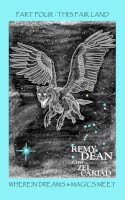
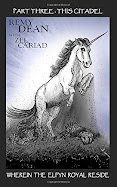
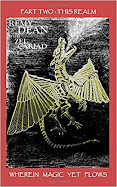

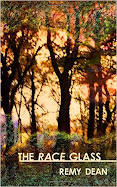
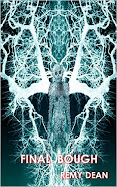





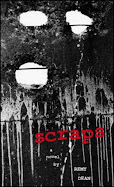
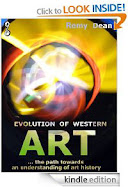




No comments:
Post a Comment